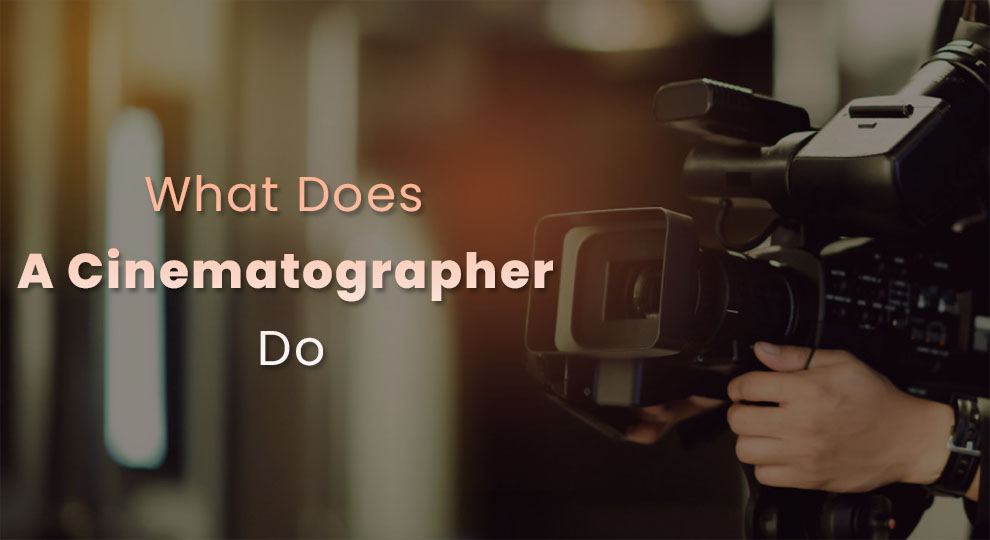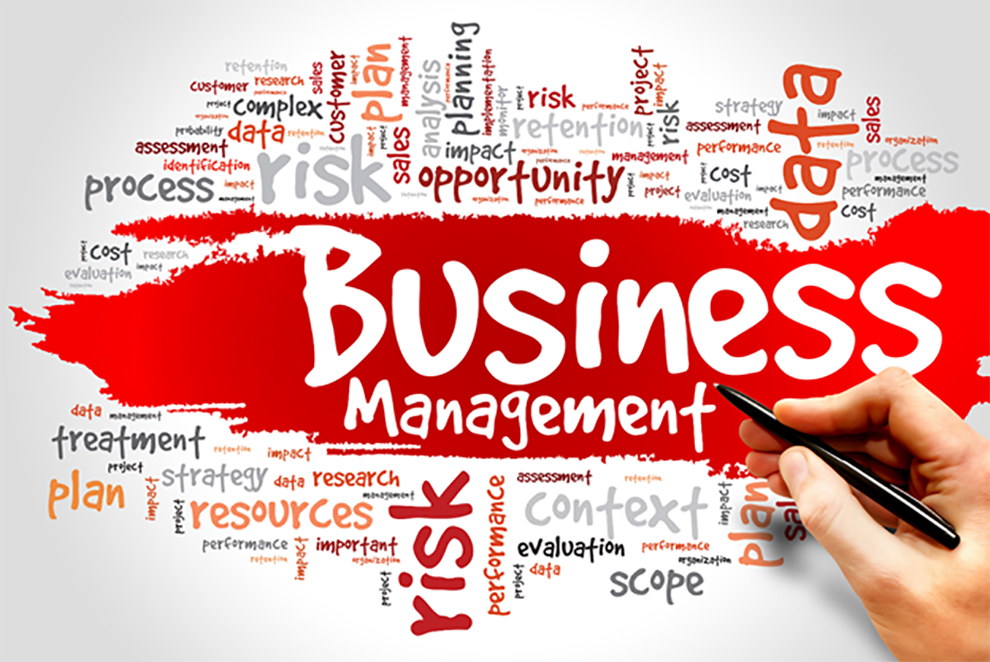In a film setup what does a cinematographer do? Well, not many of us realize but cinematographers have a significant part to play on a film set. Primarily, their role is to bring the story from the script to life on the screen.
So, they shoot the film with digital image sensors for several media types, capture the filmmaker’s vision, employ composition, lighting, and camera techniques, and translate this vision into the form of pictures. Also known as Director of Photography, the cinematographers decide
- How to light a shot,
- Which lenses and camera to use, and
- The camera’s behavior in the act
Jump To
- Roles & Responsibilities of A Cinematographer
- Cinematography As a Career
- Why Is Cinematography Important in A Film?
- Frequently Asked Questions
- Conclusion
However, the role of the cinematographer does not end here. So, if you think you have what it takes to be a champion cinematographer, you should first examine what does it mean to be a cinematographer?
In this post, we will discuss what does a cinematographer do in film? Knowing what do you need to be a cinematographer, the work environment, roles and responsibilities, educational requirements, and salary can help you make an informed decision about going further ahead.
Roles & Responsibilities of A Cinematographer
Now, below we will discuss everything that a director of photography does:
1. Picks a visual style for a shot – People ask us, ‘what does cinematographer mean?’ Our response is simple – a cinematographer is a professional who finds a visual approach and style for the film. For instance, for a documentary, a cinematographer determines whether they must rely on found footage and pictures or employ re-enactments.
2. Deciding on the camera placement – Do you wish to know about the duties of a cinematographer on a film set? On the location, one of the primary responsibilities of the cinematographer is to determine where to place the camera.
The correct camera placement can unveil the character’s emotional state and behavior. The subject’s closeness to the camera decides the audience’s detachment and engagement with the protagonist.
3. Selects a lens – Wish to get into filmmaking, but unsure about what does a director of photography do in filmmaking? One of the most significant responsibilities of a cinematographer in filmmaking is picking a lens.
Different lenses convey a story differently. The focal length and lens chosen by the cinematographer determine the overall appeal of the scene. The Director of Photography works with the film director to determine the focal length for every shot.
4. Picking the correct lighting elements – What does cinematographer meansfor aesthetics in the film? The cinematographer’s presence of mind can help with the right aesthetic, merely with the correct lighting element selection, contrast, understanding of the image depth, and contour.
5. Identifies the potential of a given set for the scene – The cinematographer is one of the first persons to approve a set.A director of photography examines a given location and helps the director decide which shots to shoot in which area.
6. Determines the aspect ratio – Before the film starts, the cinematographer sits down with the director and discusses the aspect ratio to shoot the movie. It is the mathematical relationship between the screen image’s vertical and the horizontal side.
Ideally, television sets use the 16X9 aspect ratio.Knowing how different aspect ratios can impact the viewer’s experience is essential for the Director of Photography.
7. Works with the director – On a film set, the cinematographer always has to work with the director. The cinematographer adept at their craft often suggests better concepts and ideas, usually in sync with the director’s composition, and even helps them scout locations. However, the role of the cinematographer does not end after the duration of the shoot. Even after the film wraps, the cinematographer’s work goes on.
8. Attends trials – It is always a must for the director of photography to attend the rehearsals with the actors and directors. What do cinematographers do in these rehearsals? The cinematographer understands the blocking – how the different characters interact with the setting and their movement across the scene.
It helps them picture the staging, where they will keep the cameras, how they will focus and move the cameras, and more. It is the joint effort of the cinematographer, actors, and the director to assemble a story without compromising the director’s vision.
What Does It Take to Be A Cinematographer?
1. What education is needed to become a cinematographer?
You may have some innate cinematography skills, but to succeed professionally you should have some training through certificate courses or degrees.
The U.S. Bureau of Labor Statistics (BLS) reports, cinematographers should have a post-secondary degree. Their education should focus on camera operation and equipment.
In addition, they should study the various cinematographic techniques and processes. Given the popularity of digital cinematography, students must gather an understanding of computer technology and digital cameras.
Also, the students should also be well-acquainted with the cinematography techniques. They can train at a vocational art school or a technical school. But, if you wish for comprehensive education, you can opt for a degree course.
Most cinematography and film aspirants opt for the Bachelor of Fine Art in Film course. It is a vast course with detailed coursework in cinematography and helps you know what does a cinematographer do in a film?
Whether you opt for the bachelor’s degree program or enroll in a professional art school, you will mostly explore cinematography’s theoretical and artistic aspects. You can also opt for supporting undergrad-level film program courses compiling instruction on 3-D cinematography, lighting, and pre-production visualization. By the end of the course, you should know what does cinematographer mean?
In addition, some other key topics you must be thorough with are:
- Animation
- Special effects
- Using digital, multiple mounts, or stationary cameras
- Setting the focus
Fortunately, there is a massive demand for cinematographers and operators, and the profession has been seeing significant growth in job offerings. Hence, it can be a pretty bankable skill.
2.What Skills Do You Need to Be A Cinematographer?
Once you have figured what a cinematographer does in film, you need to understand the skills required for the same. Here is a quick rundown of all the skills you need to be a cinematographer:
Specific skills
Camera operation
It is one of the mandatory skills for a cinematographer. A director of photography should know how to test different perspectives and angles. In addition, they should know how to operate a camera crane and other equipment involved in the shot.
Knowing the proper camera handling also helps them communicate with the director about how they expect a particular scene to turn out to be.
Lighting
Lighting implies employing artificial and natural light for a scene. For a cinematographer, understanding the lighting is quintessential. It helps emphasize components in the shot and creates a mood for the setup.
Also, with suitable lighting, they can develop natural shadows. A director of photography should be well-acquainted with lighting concepts in various climatic conditions like fog, snow, or rain.
Composition
The arrangement of the different components in the shot is known as composition. It involves the proper arrangement of camera angle, lighting, background, and subjects.
Cinematographers must understand composition to create beautiful captures that present a director’s vision. The composition also helps capture the audience’s attention to specific elements in the scene.
Editing
Once the shooting wraps, the cinematographer sits down with the editor before the release of the final product. Hence, they should know how to use the editing software and offer feedback on the best ways to depict a storyline without any gaps. They can also help ensure a movie transitions smoothly from one scene to another.
In addition, a cinematographer should possess some characteristic skills to get better at what they do. These include:
- Coordinating with different production facets and team members.
- Installing the equipment and tools in the location.
- Adjusting the camera and the lens
- Fixing mistakes with the shoot or the clippings.
- The creativity of accentuating the appeal of the scene.
- Flexibility and adaptability to work to meet the director’s expectations.
- Knowledge of elementary repair and maintenance for the equipment.
- Meticulous to work long hours and juggle between tight deadlines and budgets.
- Communication skills to communicate their ideas to the filmmaker and understand their thoughts.
- Knowledge of the scenic locations in the vicinity.
3. How Long Does It Take to Become a Cinematographer?
You will have to work for a decade or longer in production to understand the scope of the job. Once that happens, you can get into shooting full-time. It does not mean you do not make any money in this period.
You still work on the film set, but under an alternate discipline within the industry. As you get better at the job, you climb the hierarchy ladder higher and become a cinematographer. It is after you have completed all your academic education. So, beyond what you learn in school, you should get hands-on on the set and know what does cinematographer mean in a practical setting.
4. How Much Do Cinematographers Make?
A cinematographer’s salary depends on a range of factors:
- The kind of film they are working on
- Their existing experience
- Size of the production company
But, on average, a cinematographer earns around $34.86 per hour or $72500 annually. However, we found that the salaries of the top ten percent of cinematographers go as high as $58.65 per hour or $122,000. The compensation you command depends on how good you are.
Why Is Cinematography Important in A Film?
Now, you might wonder, what does a cinematographer do on a film set?
We have discussed above what is the main duty of a cinematographer in films, but you must also know why cinematography is quintessential in a movie?
The correct cinematography can set the whole mood of the film. It determines the movie’s overall mood and visual narrative. Every element on the screen helps accentuate the story. Hence, the Director of Photography ensures that every component backs the director’s vision.
Each attribute must be cohesive for the final output. For a flawless look on the screen, many filmmakers spend a massive chunk of their budget on top-quality cinematography to ensure the film looks fantastic on the big screen.
Frequently Asked Questions
Ques 1. Director vs. cinematographer: Is cinematography part of directing?
Ans. The two most important people are the director and cinematographer in film production. The director selects the actors, develops a storyline, decides the shots, and interprets the writer’s storyline.
On the other hand, the cinematographer takes the creative call about the color schemes, lens selection, lighting, props selection, soundtrack choice, etc. Their primary responsibility is to interpret and depict visually what’s written in the script.
The primary difference between the two is that only a single person gets credited with directing a script at a time. But, as a cinematographer, multiple people may be credited, depending on who they work with. Nonetheless, they are the two most vital people on the set.
While a cinematographer plans the film’s shots, images, and narrative, the director oversees all the filmmaking aspects. Director also monitors the scenes captured by the cinematographer. Now, what happens if there is a disagreement between the two? The call belongs to the director if it is about the final product on the screen.
Ques 2. Do cinematographers operate the camera?
Ans. Ideally, there are dedicated professionals to operate the camera, and the cinematographer focuses mainly on the lighting and the camera crew to ensure that the camera captures the director’s vision. In some sets, a cinematographer takes the plunge and captures the shots themselves for a better output.
Ques 3. Are the cinematographer and cameraman the same?
Ans. Now, what does a cinematographer do on a film set compared to a cameraman? The cinematographer is also known as the first cameraman or lighting cameraman on the film set. They may either work with the camera themselves or get assistance from the second cameraman while taking control.
But, keep in mind that a cinematographer has many more responsibilities other than just recording what’s being shot.
Ques 4. Is there a difference between a cinematographer and a director of photography?
Ans. Cinematographer and Director of Photography are homonyms. It implies the words work interchangeably. But, if we get into the peculiarity of things, there are a few differences between the two.
The cinematographer is an umbrella term and refers to anyone who functions and manipulates the camera following the director’s vision. Though used interchangeably, the director of photography has a specific role different from the cinematographer. The Director of Photography is the more specific cinematographic expert.
So, they are the senior-most employees in the cinematography department. They manage the crew and the equipment. Part artist and technician sit with the director to capture the shots as planned.
Related: Video Production Courses | How to get into screenwriting?
Conclusion
We hope our guide has answered the most debated subject – what does cinematographer mean? However, please understand that even though we have discussed in detail what do you need to be a cinematographer, it is not the whole breadth of their roles and responsibilities.
Beyond what’s discussed, what does a director of photography do in movies? They will play a vital role in aperture, shot size, and focus decisions. If you wish to learn more on what does a cinematographer do in a film, you can read books, attend a film school, or take up online cinematography courses.
In addition, you can familiarize yourself with their role through the traditional manner of learning followed by the cinematographers for over a century – working your way up the hierarchy in the camera department.




